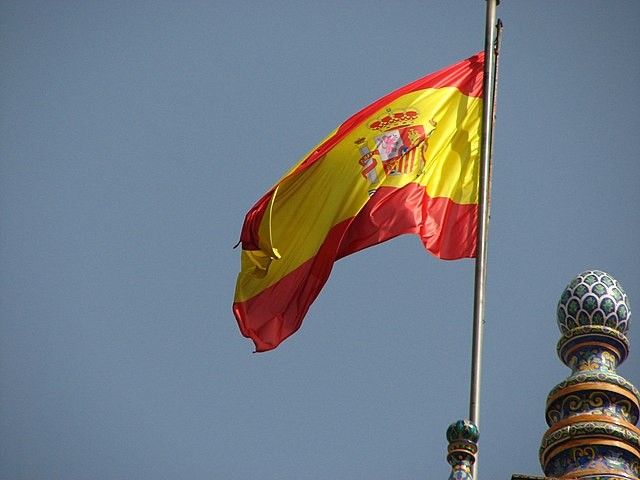At least 64 people have lost their lives in devastating flash floods that ravaged eastern Spain, turning streets into rivers, sweeping away vehicles, and cutting off entire villages from emergency services. The floods, which hit the region from Malaga to Valencia after torrential rainstorms, have been described as the worst natural disaster to strike Spain in decades. The tragedy has left the country in shock as rescue teams continue to search for missing persons, and the Spanish government prepares to declare three days of national mourning.
The downpour began on Tuesday and continued overnight, with some areas receiving a year's worth of rain in just eight hours. Meteorologists recorded more than 400 mm (15 inches) of rainfall in towns such as Chiva, located in the Valencia region. According to Spain's national weather service, the storm unleashed extraordinary amounts of water, accumulating nearly 491 liters per square meter in a short span. The torrents of water wreaked havoc on cities and towns, sweeping away cars, trees, and debris, while rescue operations faced numerous obstacles in reaching those trapped.
Flood Destruction in Spain
Pray for Spain #DANA #Chiva #Valencia #Storm #Spain #Floods #Flooding #SpainFloods #Inundación #InundacionesEnEspaña #España pic.twitter.com/JJGJAiFrFM — World Crisis Tracker (@WorldCrisi19621) October 30, 2024
In Valencia, local authorities confirmed that 62 people had died due to the floods, with two additional fatalities reported in the neighboring Castilla La Mancha region. Many areas remain inaccessible due to damaged infrastructure, leaving dozens of people still unaccounted for. Rescue efforts have been particularly challenging, with emergency services using helicopters, rubber boats, and bulldozers to navigate through the floodwaters and reach stranded residents. In one harrowing scene, an elderly couple was rescued from the upper floor of their home by soldiers riding in the bucket of a bulldozer.
Prime Minister Pedro Sánchez addressed the nation, expressing his condolences to those affected. "For those who are still looking for their loved ones, all of Spain feels your pain," Sánchez said in a televised statement. He also assured the public that the government was mobilizing all available resources to assist in rescue operations and recovery efforts. "Our priority is to help you, and we will recover from this tragedy together," he added.
Among the hardest-hit areas is the town of Utiel in Valencia, where Mayor Ricardo Gabaldón described the disaster as the worst day of his life. "We were trapped like rats," Gabaldón said in an interview with RTVE, recounting how residents had been overwhelmed by floodwaters rising to nearly 10 feet. Similar accounts of destruction were reported across the region, with videos showing streets transformed into rivers and homes inundated with mud and debris.
The disaster has raised concerns about the increasing frequency of extreme weather events in Spain, which has already been battling the effects of prolonged droughts and record-high temperatures in recent years. Scientists have linked such events to climate change, with the warming of the Mediterranean Sea cited as a significant factor in intensifying the severity of storms. Ernesto Rodriguez Camino, a senior state meteorologist, remarked, "Events of this type, which used to occur many decades apart, are now becoming more frequent, and their destructive capacity is greater."
The impact of the floods on Spain's agriculture is expected to be severe, particularly in the Valencia region, which is known for its citrus orchards. ASAJA, one of Spain's largest farming groups, has warned of extensive damage to crops. Valencia accounts for roughly 60% of the country's citrus production, making the floods a significant blow to one of Spain's major export industries.
As rescue efforts continue, there are fears that the death toll will rise as more bodies are recovered from inaccessible areas. In the village of Letur, located in Castilla La Mancha, six people remain missing, with local authorities and emergency services intensifying search efforts. Spanish media have been flooded with appeals from families searching for loved ones, further illustrating the devastating human toll of the disaster.
In response to the crisis, European Commission President Ursula von der Leyen expressed solidarity with Spain, stating that the European Union stood ready to offer assistance. "What we're seeing in Spain is devastating," von der Leyen said, adding that the EU's Copernicus geo-monitoring satellite system would be used to help coordinate rescue efforts.
The flooding has also disrupted transportation, with several rail services, including high-speed trains between Valencia and Madrid, suspended due to damaged tracks. A train derailment near Malaga, carrying nearly 300 passengers, fortunately resulted in no injuries, though it highlighted the extent of the infrastructure challenges posed by the floods.
As the waters recede, the scale of the destruction becomes more apparent. Streets in many towns are buried under thick layers of mud, while cars are piled up in heaps, and debris is scattered across the landscape. "The neighborhood is destroyed. All the cars are on top of each other. It's literally smashed up," said Christian Viena, a bar owner in the village of Barrio de la Torre. Like many others, Viena is now left to sift through the wreckage, salvaging what little remains of his livelihood.






